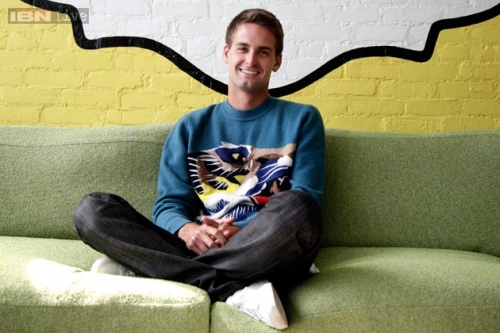
Two years ago, his Stanford University classmates were scoffing at his idea for a new kind of instant messaging app. Last week, 23-year-old Snapchat co-founder and CEO Evan Spiegel is reported to have turned down an offer from Facebook of $3bn (N477bn) for his young firm.
According to The Wall Street Journal, Mr Spiegel and his partner, CTO Bobby Murphy, 25, declined a cash offer of “close to $3bn or more” for Snapchat. It would have made it Facebook’s most expensive purchase to date, dwarfing last year’s $1bn acquisition of the photo-sharing social network Instagram. Facebook boss Mark Zuckerberg had apparently approached the Los Angeles-based firm with a previous offer in the region of $1bn but was rebuffed. His new bid was also declined, said the paper, because the Snapchat CEO is holding out for even higher offers early next year, when he expects the app’s already vast user numbers to have ballooned further.
Snapchat users can take and edit photos or video and send them to friends. Unlike similar services, however, the app allows its users to set a time limit of up to 10 seconds on each message, after which time the “Snap” will self-destruct and delete itself.
Fraternity brothers Mr Spiegel and Mr Murphy conceived the app, originally named Picaboo, as part of Mr Spiegel’s product design degree at Stanford. In spite of classmates’ scepticism, the pair launched their start-up – from Mr Spiegel’s father’s sitting room – in September 2011. Two years on, more than 350 million images are shared via Snapchat every day. The app is wildly popular with younger teenagers.
Benchmark Capital partner Mitch Lasky, one of Snapchat’s early investors, wrote in February: “At Benchmark we search for entrepreneurs who want to change the world, and Evan and Bobby certainly have that ambition. We believe that Snapchat can become one of the most important mobile companies in the world.”

